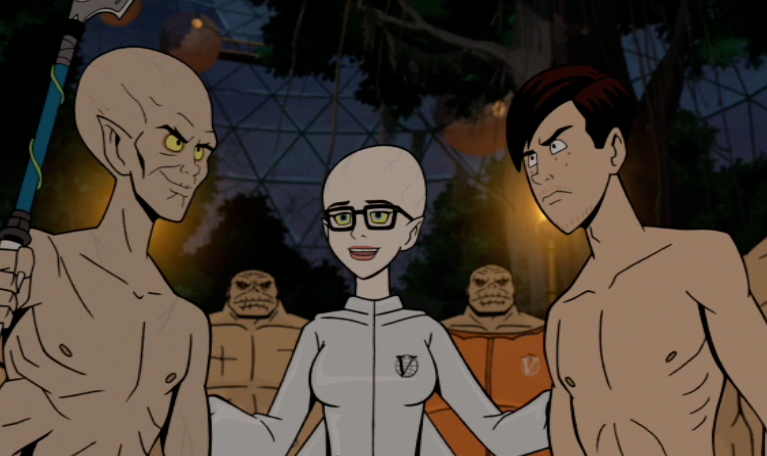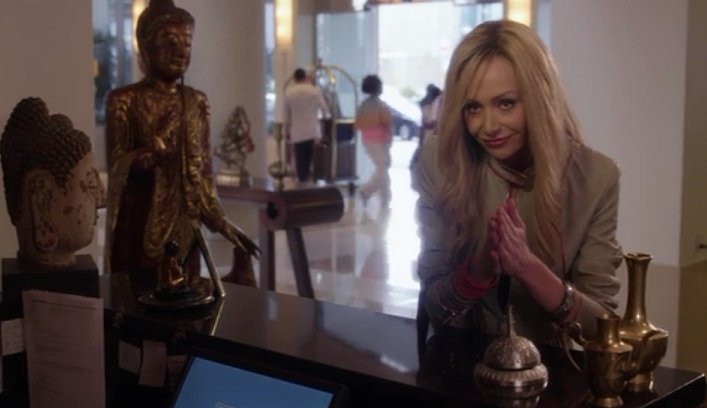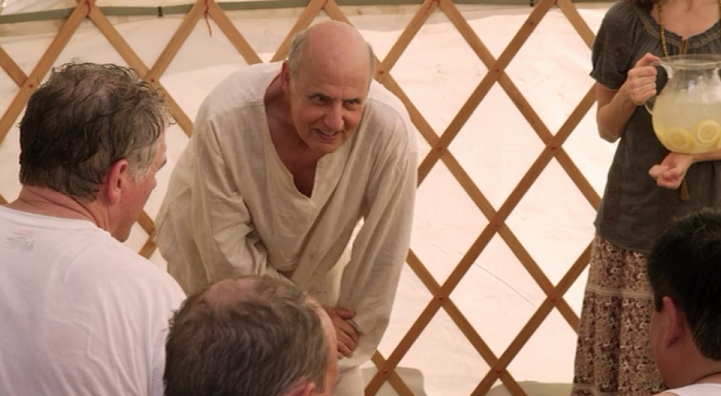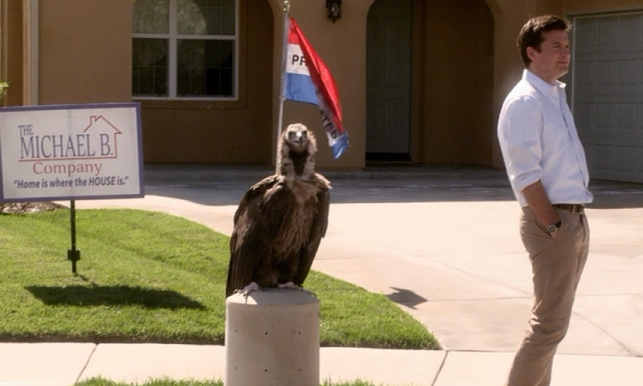When I reviewed our first taste of season 5 (a Halloween episode shuffled up in the production order) I was knee-deep in reviewing the 10th series of Red Dwarf. That’s a show that I’d list among my all-time favorites, but reviewing series 10 was an exercise in ongoing disappointment. Characters weren’t themselves, the plotting was messy, and the writing — let’s not be coy — was pretty awful. The Venture Bros. proved itself to be a very timely breath of fresh air, and it was nice to be back in the capable hands of writers who knew where they were going, and who were going to take interesting detours along the way.
Now, with the proper premiere of season 5, I’m knee-deep in reviewing the fourth season of Arrested Development, which is proving to be an exercise in ongoing disappointment for the same reasons. And, once again, The Venture Bros. pops up to remind me that no, it’s not just me. Red Dwarf and Arrested Development have lost some significant sense of identity. The Venture Bros. knows very well what it is, and what it needs to be, and while it’s not a show without blemish, it’s been pretty uniformly laudable in the way it always manages to pull itself forward.
That’s not to say that I loved “What Color is Your Cleansuit?” It is to say, rather, that even as it stumbles it reminds us that it knows what it is, and it reassures us that if we thought it was worth following along in the past, it will continue to reward us for following it into the future.
The action of the episode picks up after last season’s double-length finale, “Operation: P.R.O.M.” Interestingly, though, it covers around three months’ worth of plot, and as such zips right past the events of “A Very Venture Halloween.” Not much is made of the time skip (at least not yet…there’s every chance we’ll get more of it later in the season) but that’s okay. The Venture Bros. had its time-jumping fun with “Blood of the Father, Heart of Steel” as the season four premiere, and it’s nice that this episode doesn’t fall back on the same, admittedly tempting, mechanic.
Unfortunately “What Colors is Your Cleansuit?” doesn’t quite earn its own doubled length. I wouldn’t say that there’s much filler really (the Quizboy / St. Cloud stuff could have been shuffled off to episode two without making much of a difference, but it all signified interesting evolutions for Billy and Pete and was quite fun on its own), but unlike “Operation: P.R.O.M.” this doesn’t feel like a plot that deserved the extra space.
The basic narrative is that Dr. Venture was contracted by his brother to design and deliver custom ray shields for the new Gargantua-2 space colony. Having done nothing, Venture’s in a scramble to complete the project in 90 days, and he enlists the help of any college student foolish enough to apply with Venture Industries as an intern.
That’s a great Venture setup, and the episode begins with the team cleaning up and prepping some disused areas of the compound for the project, which provides the episode right off the bat with a nice sense of momentum and a thematic feeling of freshness. Once the interns arrive Dr. Venture splits them into three groups, based on the color cleansuit they’ve been assigned, with the green suits essentially becoming his domestic servants.
This latter detail in itself is also great, as of course Dr. Venture wouldn’t assemble any kind of team that wasn’t at least partly devoted to waiting on him hand and foot, and the class structure of the interns degrades quickly into an echo of the infamous Stanford prison experiment. Hatred comments later that he’s surprised this cruel social order sprung up among them in only three months, but as the real life equivalent demonstrated clearly, it can become pretty solidly installed in a matter of days.
The Venture twist is that since the industrial workers are exposed to dangerous levels of radiation and the domestic workers are not, there evolves a literal predator and prey relationship as well. Soylent Green gets a predictable (but fun) shoutout, but since the stronger, more brutal students actually kill and eat the weaker race of green suits there’s a strong echo of the Morlock and Eloi relationship from The Time Machine, which we know Dean and Hatred both read in season four.
So far, so great. Unfortunately it doesn’t really go anywhere from there. The students are cured (cleverly by Dr. Girlfriend’s antidote, rather than Venture’s Hail-Mary mix of narcotics and antibiotics), which definitely feels like a pulled punch considering the fact that The Venture Bros. has had no problem letting cruel consequences stick in the past. And that’s about it; the story ends after some fun detours but no real resolution.
I do almost wonder if this plot would have been better served by actually being spread out over B-plots in a few episodes. We could raise the ray shields issue here and segregate the interns, and let it be a few weeks before we start seeing how their society has started to crumble, and a few more before we get a full episode-length plot about the cannibalism and antidote. I’m not really sure…I just think it’s an interesting point of consideration.
As it stands, condensed into one long episode, I think it lacks the punch that the previous three season premiers had. “What Color is Your Cleansuit?” is full of great moments (from Billy being commanded to eat a jar of pennies — a joke that unlike anything in Arrested Development season four actually does go around from being annoying to being hilarious — to Dr. Venture running simulations regarding the fate of his interns by playing The Oregon Trail) and such perfect character interplay that I’m reminded of why I fell in love with this show in the first place.
It’s great to be back with these characters again. That’s something I wish I could say about Red Dwarf and Arrested Development, but I know it’s not worth being with any characters again at the expense of the writing quality behind them. The Venture Bros. doesn’t have that issue. While I wish the episode committed even more fully to its dark premise, I have no real concerns about what we ended up with, and it sets up a lot of brilliant ground for the rest of the season to explore.
Dean in particular continues to grow and change as a character, and if this episode taken in tandem with “A Very Venture Halloween” is anything to go by, season five may very well turn out to be his story. Dean, the most rigid and naive Venture, just might figure out who he really is…and that’s something Jackson and Doc can only pull off because they know their characters so well.
If they didn’t…well, The Venture Bros. would just be a cartoon.



